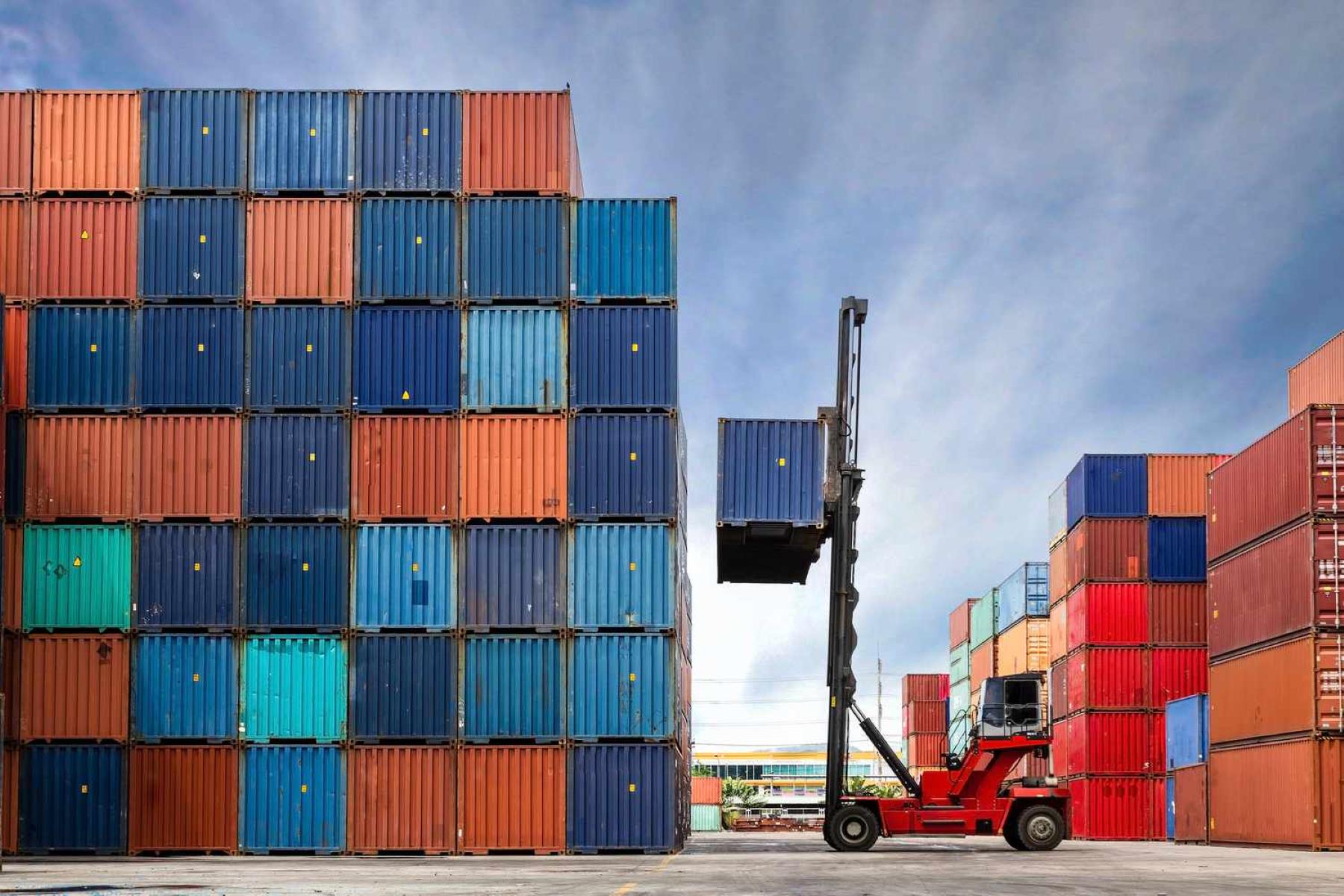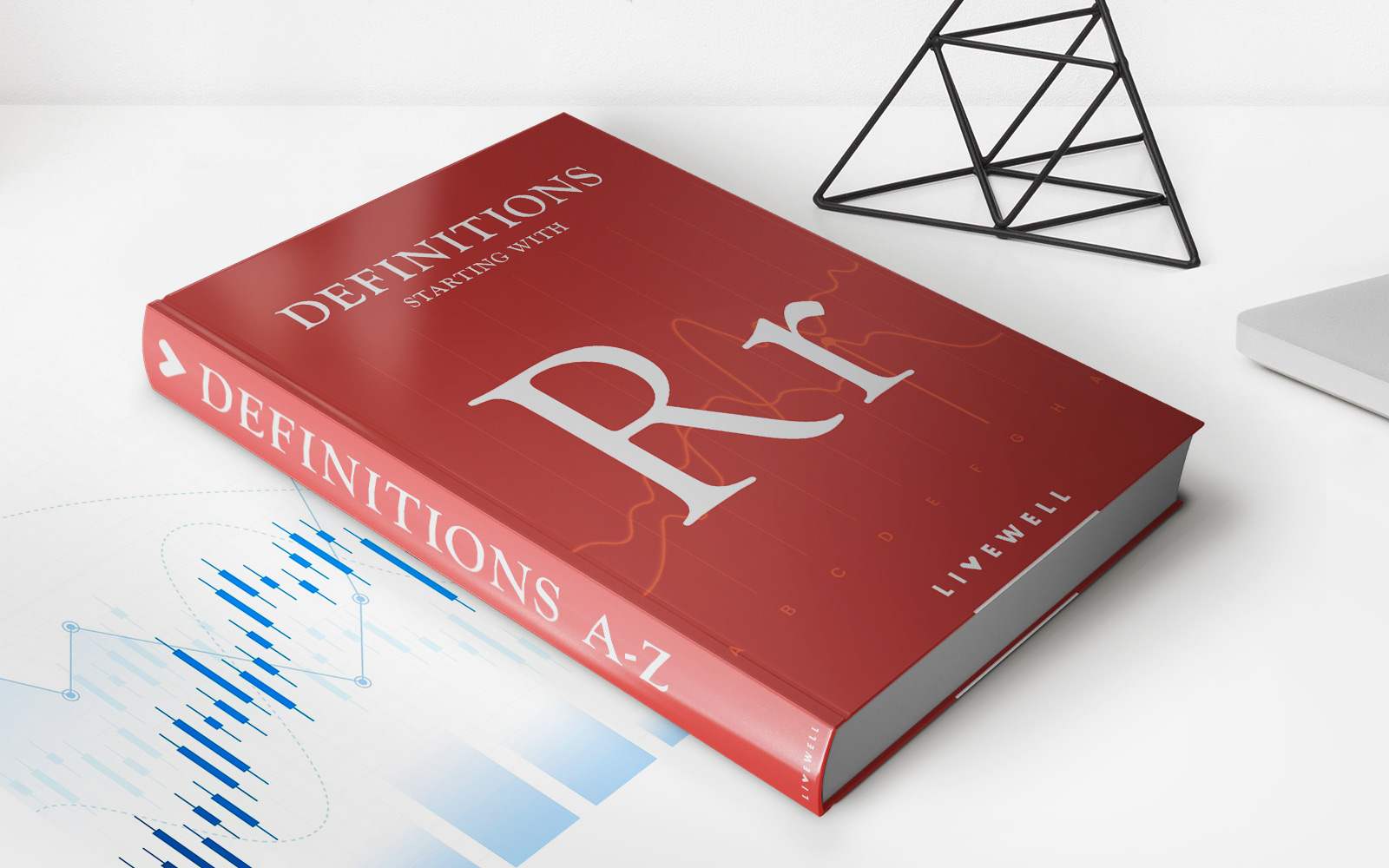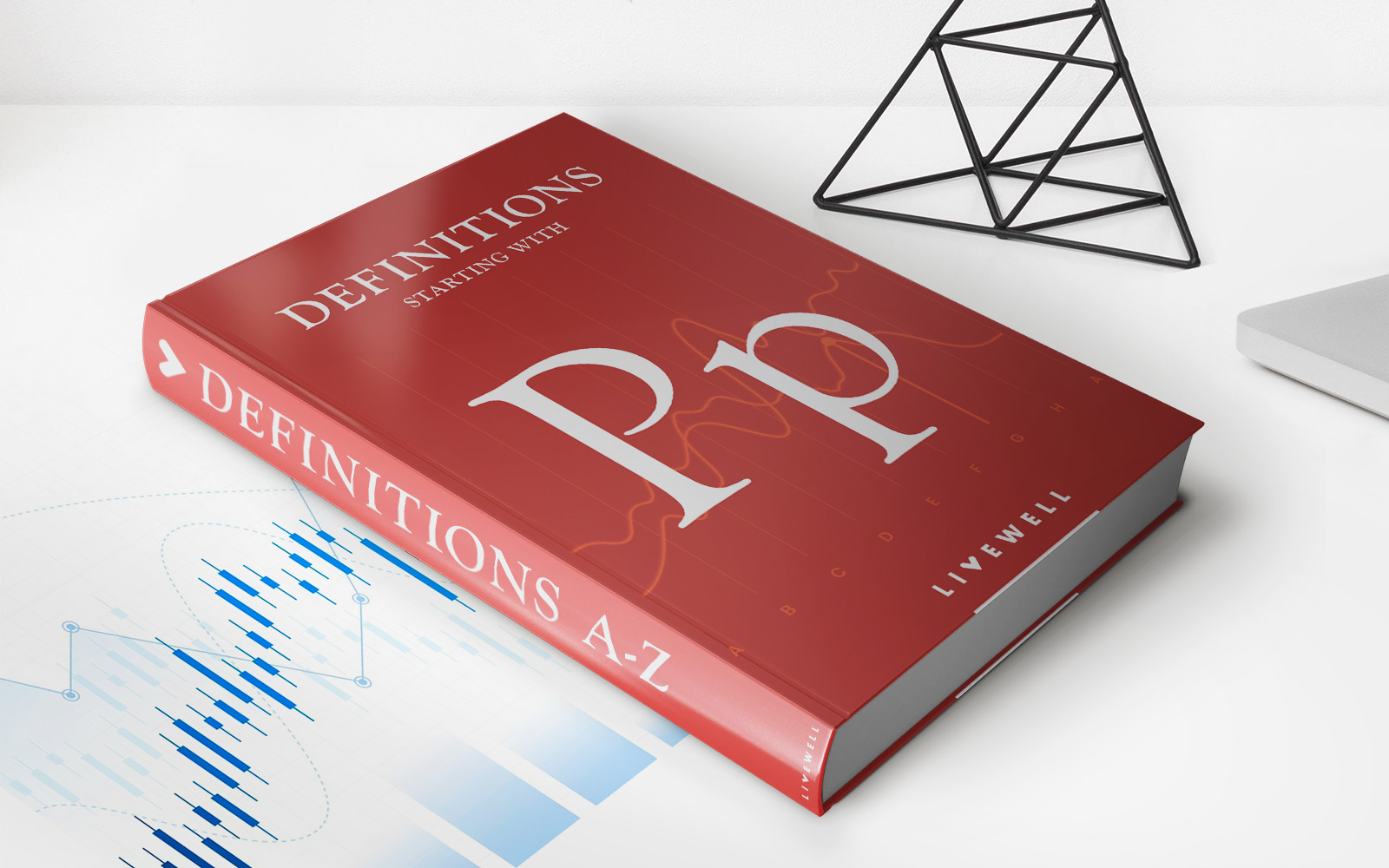

Finance
What Is Freight Insurance?
Published: November 8, 2023
Protect your freight investments with comprehensive freight insurance. Safeguard your finances and ensure peace of mind with coverage tailored to your unique shipping needs.
(Many of the links in this article redirect to a specific reviewed product. Your purchase of these products through affiliate links helps to generate commission for LiveWell, at no extra cost. Learn more)
Table of Contents
Introduction
Freight insurance plays a vital role in the shipping and logistics industry. As businesses expand their reach globally, the transportation of goods becomes increasingly complex and risky. Whether it’s by land, sea, or air, there is always a chance for unforeseen events that can result in loss or damage to the cargo. This is where freight insurance steps in.
Freight insurance is a type of insurance coverage specifically designed to protect the value of goods while they are in transit. It provides financial protection against various risks such as theft, damage, or loss during transportation. This insurance coverage is not limited to any particular mode of transport and can be tailored to meet the specific needs of the shipper, importer, or exporter.
Understanding the ins and outs of freight insurance is crucial for businesses involved in shipping or receiving goods. It enables them to mitigate potential risks, address financial losses, and maintain the smooth flow of their operations. In this article, we will delve deeper into freight insurance, exploring its types, coverage, benefits, and the factors that affect insurance rates. We will also discuss how to obtain freight insurance and the claims process involved.
Moreover, we will highlight the importance of freight insurance in safeguarding the financial interests of businesses and provide some valuable tips for choosing the right freight insurance coverage. By the end of this article, you will have a comprehensive understanding of freight insurance and be better equipped to protect your valuable cargo.
Definition of Freight Insurance
Freight insurance, also known as cargo insurance or goods in transit insurance, is a type of insurance coverage that protects the value of goods or cargo during transportation. It is designed to provide financial compensation in the event of loss, damage, theft, or other perils that may occur while the goods are in transit.
Freight insurance can be obtained by the shipper, importer, exporter, or any party with an insurable interest in the cargo. It covers a wide range of goods and commodities, including raw materials, finished products, machinery, equipment, consumer goods, and more. The insurance coverage is not limited to any particular mode of transport and can apply to goods transported via land, sea, or air.
When a company purchases freight insurance, they are effectively transferring the risk of loss or damage to the insurance provider. In the event of a covered loss, the policyholder can make a claim to recover the value of the damaged or lost goods. The insurance coverage may include the full value of the goods, as well as any associated costs such as transportation fees, customs duties, and storage expenses.
It’s important to note that not all risks are covered under freight insurance policies. Common exclusions include losses resulting from natural disasters, acts of war, nuclear events, and intentional misconduct. It’s essential to thoroughly review the policy terms and conditions to understand the scope of coverage and any potential limitations.
Freight insurance provides peace of mind to businesses involved in shipping and receiving goods. It offers protection against unforeseen events that can result in financial losses, helping companies to mitigate risks and maintain the smooth flow of their operations. Additionally, it provides a sense of security for parties involved in international trade, where goods may pass through multiple jurisdictions and encounter various risks along the way.
In the next section, we will explore the different types of freight insurance available to businesses and discuss their specific coverage and benefits.
Types of Freight Insurance
Freight insurance offers various types of coverage to meet the specific needs and risks associated with different modes of transport and goods being transported. Understanding the different types can help businesses choose the most appropriate coverage for their cargo. Here are some common types of freight insurance:
- Marine Cargo Insurance: Marine cargo insurance provides coverage for goods transported over water, such as by ship or barge. It includes both import and export shipments and protects against risks like theft, damage from rough seas, sinking, and collisions. This type of insurance can be further divided into specific policies for ocean cargo, inland marine cargo, and even specialized coverages for goods like perishable items or hazardous materials.
- Inland Transit Insurance: Inland transit insurance is designed to cover goods transported within a specific country, typically by road, rail, or inland waterways. It provides protection against risks such as accidents, theft, and damage during transportation from one location to another. Inland transit insurance is often used for domestic shipments or for goods being transported to or from a port.
- Air Cargo Insurance: Air cargo insurance is specifically tailored for goods transported by air. It protects against risks like theft, damage from turbulence, fire, or mishandling. Given the fast-paced nature of air transportation, this type of insurance is essential to safeguard high-value and time-sensitive cargo.
- Land Transit Insurance: Land transit insurance covers goods transported by land, typically by truck or train. It provides protection against risks such as accidents, theft, fire, and damage during transportation. This type of insurance is often used for domestic shipments or when goods are being transported overland before or after an international journey.
It’s important to note that these are just a few examples of the types of freight insurance available. Each type can be further customized to include additional coverage options based on the specific needs of the shipper and the nature of the cargo being transported.
Next, we will explore the coverage and benefits provided by freight insurance.
Coverage and Benefits
Freight insurance provides a wide range of coverage and benefits to protect the value of goods during transportation. The specific coverage may vary depending on the type of insurance policy and the terms agreed upon. Here are some common coverage options and benefits of freight insurance:
- Physical Loss or Damage: Freight insurance typically covers physical loss or damage to the goods caused by risks such as theft, accidents, natural disasters, fires, or mishandling during transportation.
- Theft and Pilferage: Insurance policies may include coverage for losses resulting from theft or pilferage, safeguarding against the illegal act of stealing part of the cargo.
- General Average: In the event of a general average situation, where sacrifices are made to save the vessel or cargo, freight insurance can provide coverage for the proportionate contribution required by the insured parties.
- Warehouse-to-Warehouse Coverage: Some policies include coverage from the moment the goods leave the warehouse of origin until they reach the final destination, providing comprehensive protection throughout the entire transportation process.
- Customs Duties and Taxes: Depending on the policy, freight insurance may cover customs duties and taxes incurred on damaged or lost goods, helping businesses avoid additional financial burdens.
- Delay or Business Interruption: Certain policies may provide coverage for financial losses resulting from delays in transit, including loss of income or additional expenses incurred due to disruptions in the supply chain.
- Rejection and Retrieval Costs: Insurance coverage may extend to expenses incurred in retrieving or salvaging damaged goods or rejected shipments, helping businesses manage the costs associated with such situations.
- Professional Assistance: Freight insurance often includes access to experienced professionals who can provide guidance and assistance throughout the claims process, ensuring a smooth experience in the event of a loss.
It is crucial to carefully review the terms and conditions of the insurance policy to fully understand the extent of coverage provided. In some cases, additional coverage options can be added to tailor the policy to specific cargo, transport routes, or risks associated with the business.
Next, we will explore the factors that can affect freight insurance rates.
Factors Affecting Freight Insurance Rates
Freight insurance rates are determined by a variety of factors that assess the level of risk associated with insuring the cargo. Understanding these factors can help businesses estimate their insurance costs and make informed decisions when purchasing freight insurance. Here are some key factors that can impact freight insurance rates:
- Nature of Goods: The type of goods being transported plays a significant role in determining insurance rates. High-value goods or goods that are prone to damage or theft may attract higher insurance premiums.
- Mode of Transport: The mode of transportation chosen, such as air, sea, or land, can affect insurance rates. Each mode carries its own set of risks, and insurance premiums may vary accordingly. For example, air shipments may have higher rates due to the time sensitivity and higher value of goods transported.
- Transportation Route and Distance: The origin and destination of the goods, as well as the distance they need to travel, can impact insurance rates. Routes that pass through areas with higher risks of theft, accidents, or political instability may result in higher premiums.
- Past Claims and Loss History: The claims history of the insured party can influence insurance rates. A track record of frequent claims or high-value losses may lead to higher premiums as it indicates a higher risk.
- Security Measures: The security measures implemented during transportation, including the use of tracking systems, security personnel, or secure packaging, can affect insurance rates. Strong security protocols can potentially reduce the risk of loss or theft and result in lower premiums.
- Declared Value of Goods: The declared value of the goods being shipped is another important factor. Typically, insurance premiums are based on a percentage of the declared or insured value of the goods. Higher-value goods will naturally result in higher insurance rates.
It’s important to note that these are general factors, and insurance providers may consider additional criteria specific to their underwriting process. Consulting with an insurance professional or broker is recommended to obtain accurate and tailored information on insurance rates.
In the next section, we will discuss how businesses can obtain freight insurance and the steps involved in the process.
How to Obtain Freight Insurance
Obtaining freight insurance is a crucial step to protect your cargo during transportation. Here is a step-by-step guide on how businesses can obtain freight insurance:
- Evaluate your insurance needs: Assess the nature of your cargo, the mode of transportation, and the risks involved to determine the type and extent of coverage required. Consider factors such as the value of the goods, transportation routes, and any specific risks related to your industry.
- Research insurance providers: Conduct thorough research to identify reputable insurance providers that specialize in freight insurance. Look for providers with extensive experience in the shipping and logistics industry and a track record of reliable coverage and claims handling.
- Request quotes: Contact multiple insurance providers and request quotes based on your insurance needs. Provide detailed information about your cargo, transportation requirements, and any additional coverage options you may require.
- Compare coverage and costs: Review the quotes received and compare the coverage offered, policy terms, and associated costs. Consider not only the premiums but also any deductibles, coverage limits, and exclusions.
- Select a suitable policy: Once you have evaluated the quotes and compared the coverage and costs, choose the policy that best meets your requirements. Consider factors such as the reputation of the insurance provider, their customer service, and their claims handling process.
- Complete the application: Fill out the necessary application forms provided by the insurance provider. Provide accurate information about your cargo, transportation details, and any other requested documentation.
- Pay the premium: Upon acceptance of your application, you will be required to pay the premium for the insurance coverage. The premium amount will depend on the factors discussed earlier, such as the nature of the goods, transportation mode, and insurance policy terms.
- Receive policy documents: Once the premium payment is processed, you will receive your freight insurance policy documents. Carefully review the policy and ensure that it accurately reflects the coverage agreed upon.
- Keep records: Maintain proper records of your insurance policy, including the policy documents, premium payment receipts, and any related correspondence. These documents will be essential in the event of a claim or if you require any updates or modifications to your coverage.
Partnering with an experienced insurance broker can streamline the process of obtaining freight insurance. They can provide assistance in assessing your insurance needs, comparing quotes, and guiding you through the application process.
Next, we will explore the claims process and requirements for freight insurance.
Claims Process and Requirements
When it comes to freight insurance, understanding the claims process and requirements is crucial. Here is an overview of the typical claims process and the requirements involved:
- Notify the insurance provider: In the event of loss or damage to your cargo, it’s important to notify your insurance provider as soon as possible. Most insurance policies have specific time limits for reporting claims, so prompt notification is essential.
- Gather necessary documentation: Collect all relevant documentation to support your claim. This may include the original bill of lading, packing list, commercial invoice, delivery receipts, photographs of the damaged goods, and any other evidence that substantiates the loss or damage.
- Submit the claim: Compile the necessary documents and submit the claim to your insurance provider. Make sure to complete the claim form accurately and provide all requested information. Failure to provide complete and accurate information may result in delays or denial of your claim.
- Cooperate with the claim investigation: Most insurance providers will conduct an investigation to assess the validity of the claim. This may involve contacting the parties involved in the transportation, reviewing documents, and examining the evidence provided. It’s important to cooperate fully throughout the investigation process.
- Evaluate the claim: Once the investigation is complete, the insurance provider will evaluate the claim and make a determination regarding coverage. They may request additional information or documentation if needed.
- Approval and payment: If the claim is approved, the insurance provider will provide the appropriate compensation based on the terms and conditions of the policy. The payment may cover the value of the damaged or lost goods, as well as associated costs such as transportation fees or customs duties, up to the policy limits.
- Denial or dispute resolution: In the event of a claim denial or if there is a dispute regarding the settlement, you may need to engage in further discussions or negotiations with the insurance provider. It’s important to review the policy terms and work with the insurer to reach a satisfactory resolution.
It’s crucial to carefully review the terms and conditions of your freight insurance policy to understand the specific requirements and procedures for filing a claim. Adhering to the claims process and providing accurate and complete information will help facilitate a smooth and timely resolution.
In the next section, we will discuss the importance of freight insurance for businesses involved in shipping and receiving goods.
Importance of Freight Insurance
Freight insurance holds significant importance for businesses involved in shipping and receiving goods. It provides a range of benefits and safeguards the financial interests of companies in the following ways:
- Financial Protection: Freight insurance offers financial protection against the risks of loss, damage, theft, or other perils that can occur during transportation. It ensures that the value of the goods is covered, allowing businesses to recover their investment in the event of an unexpected incident.
- Mitigating Risks: The transportation of goods involves inherent risks, such as accidents, natural disasters, theft, or mishandling. Freight insurance helps businesses mitigate these risks by transferring the financial burden of potential losses to the insurance provider.
- Ensuring Smooth Operations: A setback in the transportation process due to loss or damage to cargo can disrupt the entire supply chain. Freight insurance helps businesses resume operations quickly by providing compensation for any financial losses incurred, allowing for the continuous flow of goods and uninterrupted business activities.
- Building Trust and Confidence: Having comprehensive freight insurance demonstrates professionalism and instills confidence in customers and business partners. It assures them that their goods will be protected during transportation and that their financial interests are safeguarded.
- Compliance with Legal Requirements: In certain cases, freight insurance may be required by law or contractually obligated. For example, some shipping contracts or international trade agreements may stipulate the need for cargo insurance. Complying with these requirements is essential to avoid legal consequences and maintain good business relationships.
- Peace of Mind: Freight insurance provides peace of mind to businesses by offering a safety net against unforeseen events. It allows companies to focus on their core operations without constantly worrying about the financial implications of potential losses.
With the global expansion of supply chains and the increasing complexity of logistics, having adequate freight insurance has become essential for businesses of all sizes. It not only protects the financial well-being of the company but also supports customer satisfaction, business growth, and long-term sustainability.
In the next section, we will provide some valuable tips for businesses on choosing the right freight insurance coverage.
Tips for Choosing the Right Freight Insurance
Choosing the right freight insurance coverage is essential to adequately protect your cargo and mitigate potential risks. Here are some valuable tips to consider when selecting the right freight insurance for your business:
- Assess Your Needs: Evaluate the nature of your goods, transportation requirements, and the risks involved. Consider factors such as the value of the cargo, transportation routes, and any specific risks associated with your industry.
- Research Reputable Providers: Conduct thorough research and seek recommendations to identify reputable insurance providers specializing in freight insurance. Look for providers with experience in the shipping and logistics industry and a proven track record of reliable coverage and responsive claims handling.
- Compare Coverage Options: Compare coverage options from different providers. Review the terms, limits, exclusions, and additional coverage options available. Ensure that the policy adequately covers the risks specific to your cargo and transportation needs.
- Consider Claims Handling Process: Evaluate the claims handling process of the insurance provider. Check their reputation for prompt and fair claims settlements. Look for providers that offer efficient claims reporting, clear communication, and timely resolution of claims.
- Check Financial Stability: Assess the financial stability of the insurance provider. Consider their ratings from credible financial rating agencies to ensure their ability to honor claims and provide the necessary financial protection.
- Review Policy Terms: Carefully review the terms and conditions of the insurance policy before making a decision. Understand the coverage limits, deductibles, and any exclusions that may affect your specific cargo and transportation needs.
- Consider Additional Services: In addition to insurance coverage, some providers offer additional services such as risk assessment, safety training, or loss prevention guidance. These services can add value and help you reduce risks in your shipping operations.
- Seek Professional Guidance: Consider consulting with an experienced insurance broker who specializes in freight insurance. They can provide expert advice, assess your specific needs, gather multiple quotes, and guide you through the process of obtaining the most suitable coverage.
- Regularly Review and Update Coverage: As your business evolves, regularly review your insurance coverage to ensure it aligns with your current needs. Keep the insurance provider informed about any changes in your business operations, cargo types, or transportation routes that may impact your coverage requirements.
Choosing the right freight insurance coverage involves careful consideration and research. By following these tips, you can select the insurance provider and policy that best align with your business needs, thereby ensuring comprehensive protection for your valuable cargo.
With these tips in mind, you will be in a better position to select the most appropriate freight insurance coverage for your business.














